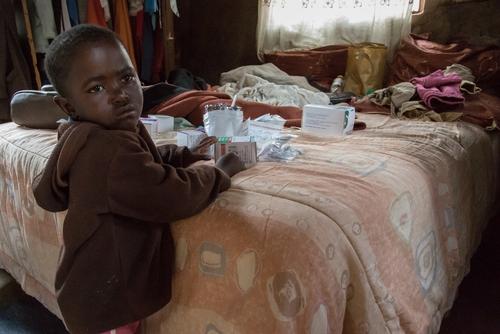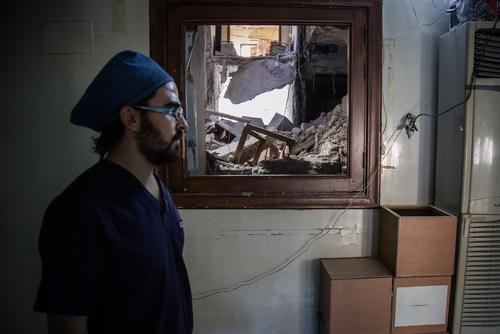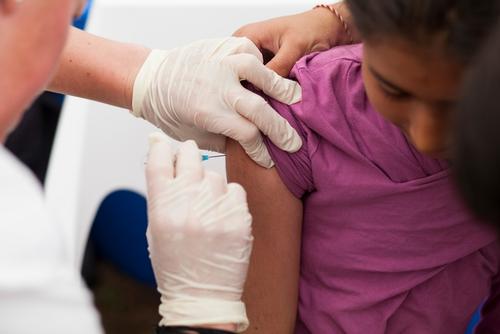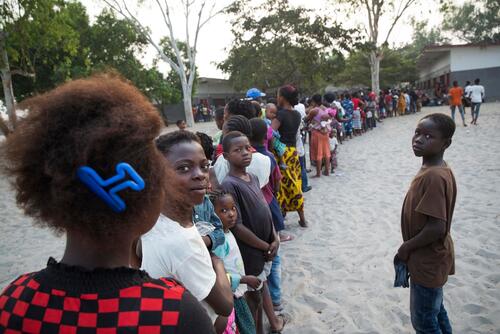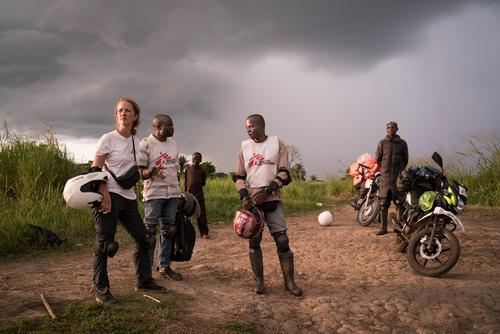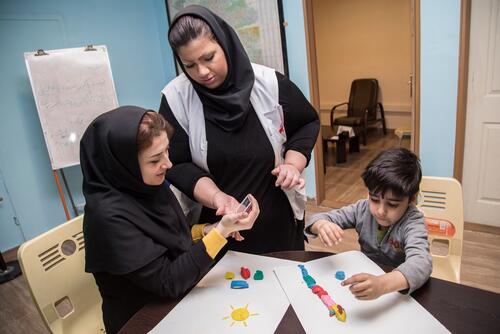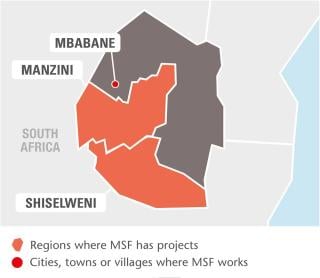
20,300
20,3
1,300
1,3
Swaziland has one of the world’s highest rates of HIV, with nearly one in three adults living with the disease. Estimates suggest that HIV incidence rates have fallen in recent years, as significant progress has been made in improving the number of people receiving antiretroviral (ARV) treatment. In addition, the incidence of drug-sensitive TB has more than halved between 2010 and 2016, as numbers of people with drug-resistant forms of TB have fallen by 20 per cent between 2015 and 2016. However, around 80 per cent of people with TB in Swaziland are HIV positive.
In 2016, MSF continued to help more HIV patients access ARV treatment through the ’test and start’ strategy. A team has been piloting ‘test and start’ in the Nhlangano project; after HIV testing, ARV treatment was offered to more than 1,700 people after a positive HIV diagnosis to immediately start treatment. Twelve months after treatment initiation, 82 per cent of people who were on treatment had successfully suppressed the virus . As a result, ‘test and start’ was adopted by the Ministry of Health as the national standard of HIV care in October 2016.
MSF has started treating patients with extensively drug-resistant TB (XDR-TB), and those developing severe side effects, using the promising new drugs bedaquiline and delamanid in combination with repurposed drugs. Almost all of the 81 XDR- and multi drug-resistant (MDR) TB patients had achieved culture conversion after six months (meaning that TB bacteria could no longer be detected in their sputum, and they were on the way to being cured). Most of these patients receive treatment at the national DR-TB referral hospital in Moneni, where MSF is supporting the Ministry of Health to strengthen outpatient care.
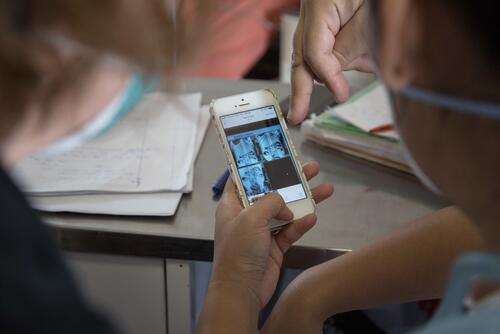
In 2016, MSF handed over first-line HIV treatment and in-facility HIV testing in 16 out of 22 primary health clinics in Shiselweni to AIDSFREE/PEPFAR. MSF is increasingly focusing on providing specialised HIV care, including second- and third-line ARV treatment, cervical cancer screening, and routine point-of-care testing for opportunistic infections. In 2016, 31,784 patients had viral load tests, 407 received second-line HIV care, 1,407 were enrolled in community ARV models of care, and 647 women were screened for cervical cancer, of whom 19 per cent tested positive.
In Manzini, MSF has been implementing the shorter DR-TB treatment regimen (nine to 12 months instead of two years) since 2014, and has seen a success rate of 75 per cent. This regimen has since been recommended by the World Health Organization,and was adopted by the Ministry of Health as the new national standard of care for MDR-TB treatment, with MSF is providing support.
MSF continued to offer comprehensive healthcare with integrated HIV and TB services in Matsapha. The team is also exploring a new model of care for non-communicable diseases (NCDs), including for people infected with HIV and TB. The majority of the 731 patients treated for NCDs had either hypertension or diabetes.
446
446
9.6 M
9.6M
2007
2007
Patient story
MAGGI MYENI – 50, an HIV patient from Tibane in Shiselweni.
I collect my drugs from JCI clinic. It takes me around five hours to travel to and from my clinic and I spend SZL 60 for the trip. In May 2016, a small group of neighbours on HIV treatment and I formed a community antiretroviral treatment group (CAG). Each month, the group chooses one member who goes to the clinic to collect the medication for the others.
I find being in the group very helpful and I am able to save the little money that I have. Today, it was my turn to come to the clinic to fetch the medication. When I was done with all my HIV-related consultations and collecting the medication, I decided to do the test to check if I have cancer (VIA screening).
The nurse told me that there were whitish patches in my cervix. He said this means I have sores in my cervix and therefore a high chance of getting cervical cancer. He treated the sores and told me to come back to the clinic if I bleed. I am relieved now that I have done the test and have received the necessary treatment on time.



